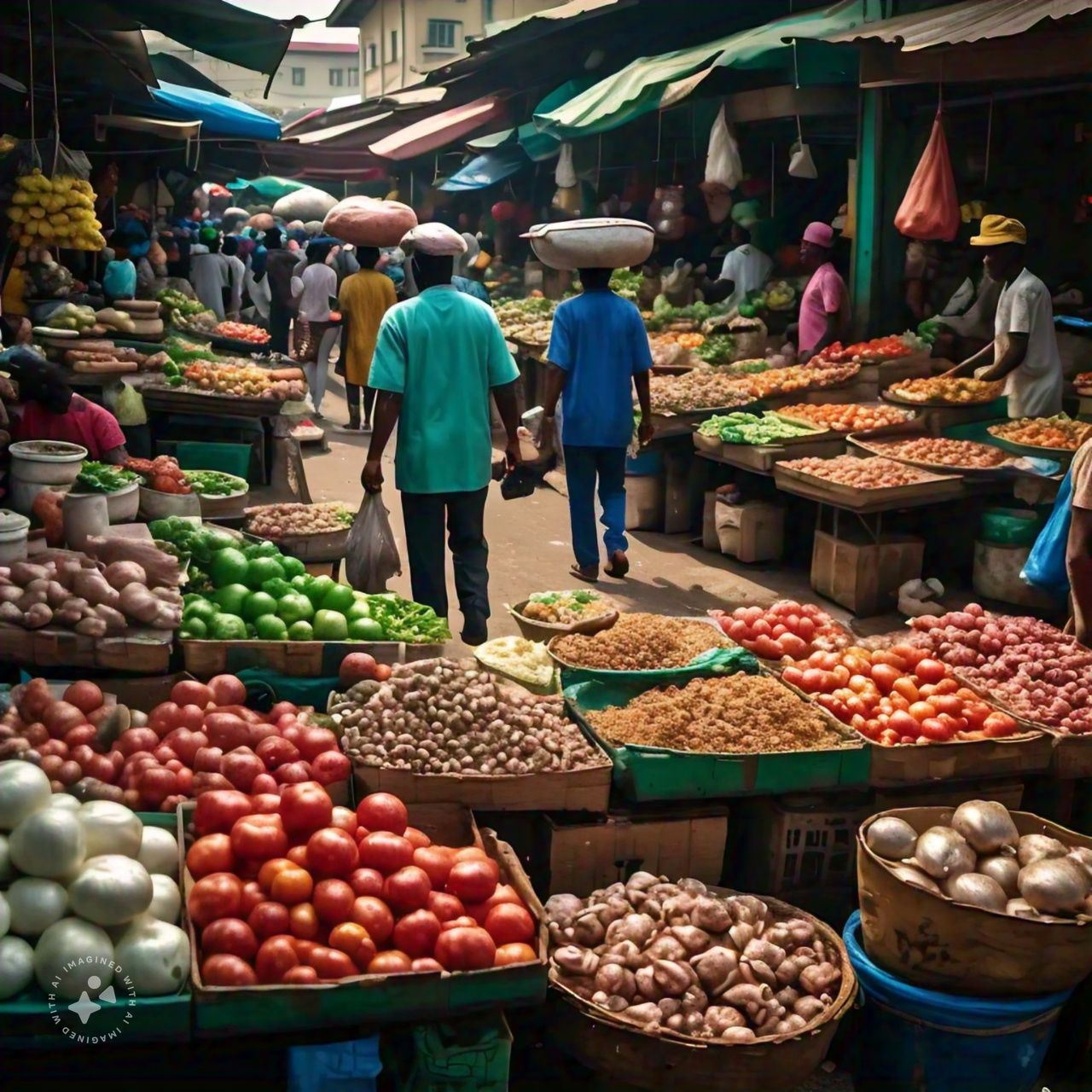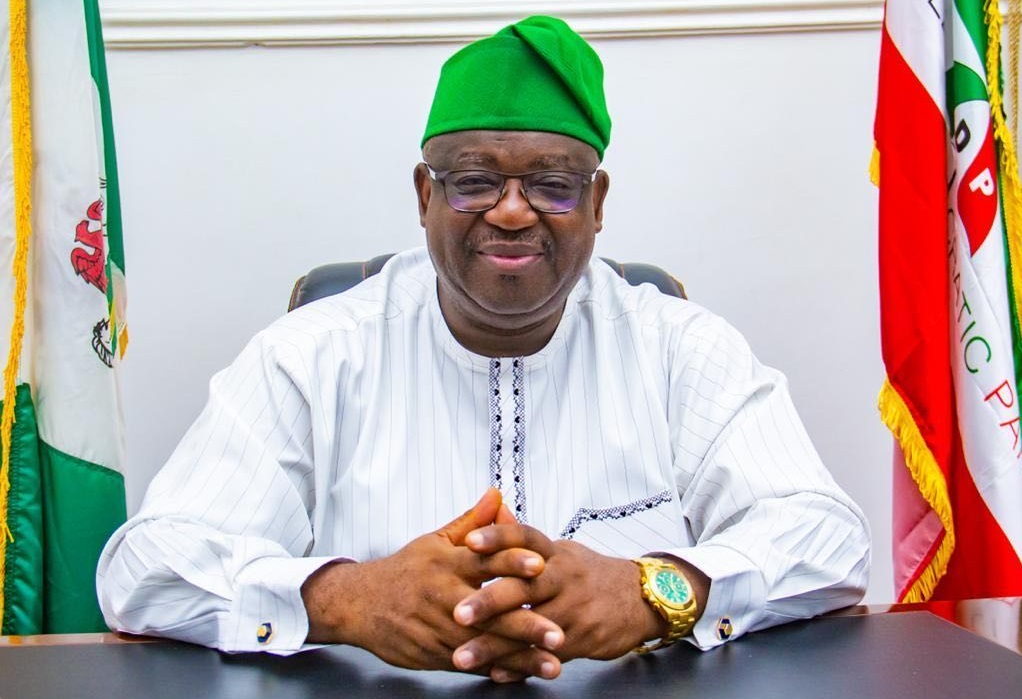News
Tasty Connections Between Nigerian Food Cravings in the UK and Opportunities

By Gloria Ikibah
If you have ever been away from home, you will understand that one of the toughest things to miss is the food. For Nigerians living in the United Kingdom, the hunger for the spicy, hearty flavours of home is more than just a craving, it’s a piece of their identity.
In the quest to satisfy these hungers, a golden opportunity has emerged for Nigerians back home to step into the global food market. Here’s a look at how the mouthwatering appeal of Nigerian cuisine in the UK can be turned into a profitable venture for those in Nigeria.
The Craving for Home
Imagine being in a small town in England, where the local cuisine is dominated by fish and chips, and the nearest taste of home is miles away. For many Nigerians in the UK, this scenario is a reality. They find themselves craving for the rich flavors of Jollof rice, spicy Suya, spicy and tasty kilishi from maiduguri and the comforting taste of Egusi soup, ofe onugbu, the niger delta native and fisherman soups, to the edikaikong andmlaafang of the Ibibios, how about the amala, ewedu and gbegiri or is it the efo riro from the Yoruba kingdom, don’t also forget the famous miyan kuka, miyan taushe eaten with tuwon shinkafa, even the ewa agoyin, and the list is endless. It’s not just about eating; it’s about connecting with their roots, celebrating their culture, and enjoying the flavors that remind them of home.
These food cravings are not just fleeting desires; they’re deep, emotional connections to their heritage. And while there are some Nigerian restaurants and shops in the UK, they often don’t offer the full array of dishes or may not be easily accessible. This is where a unique opportunity lies.
Bridging the Gap: An Opportunity for Nigerians at Home
For Nigerians in the UK, finding authentic Nigerian food can be a challenge. But for those back home in Nigeria, this craving opens a window of opportunity. Here’s how you can tap into this niche market and make some serious cash:
1. Exporting Nigerian Delicacies
You may want to consider exporting some of Nigeria’s finest culinary delights? Have you imagined packaging and shipping Jollof rice, Egusi soup, and spicy Suya to Nigerian communities in the UK. You can start with small, manageable batches to test the market and ensure the packaging preserves freshness and adheres to international food safety standards.
Also you can partner with local businesses or use of online platforms can help you reach your audience more effectively.
2. Online Grocery Stores**
Create an online grocery store specializing in Nigerian ingredients. Many Nigerians in the UK struggle to find authentic spices, condiments, and ingredients. By setting up an online shop that sells items like ground crayfish, palm oil, or Nigerian pepper, even banga spicies or you can cater to their needs. But make sure that you provide detailed descriptions and use high-quality images to attract buyers.
3. Ready-to-Cook Kits
How about offering ready-to-cook kits? These kits can include pre-measured ingredients and easy-to-follow recipes for classic Nigerian dishes. They make cooking simpler for those who miss the taste of home but do not have the time or expertise to prepare it from scratch. Just think about how excited a Nigerian in the UK would be to receive a kit that allows them to recreate their favorite meal with ease!
4. Subscription Boxes
Consider a subscription box service. Nigerians in the UK could subscribe to a monthly box that includes a variety of Nigerian snacks like kuli kuli, ridi, kokoro, tanfili, ichekwu, alewa, spices for pepper soup, other soups, and cooking ingredients. This could also include recipe cards and tips for cooking. It’s a fantastic way to keep them connected to their culture and provide them with the comfort of familiar tastes on a regular basis.
5. Collaboration with Local Restaurants
You may want to also partner with Nigerian restaurants in the UK, many of these businesses might be interested in sourcing ingredients directly from Nigeria to ensure authenticity and quality. By establishing a supply chain, you can help these businesses maintain their standards and expand their offerings.
Marketing and Customer Engagement
If you must succeed, understanding your target market is key. Ypu would have to engage with Nigerian communities in the UK through social media and online forums. This will give you insights into their preferences and needs. Use this feedback to tailor your products and services. Creating a buzz around your offerings through social media campaigns, influencer partnerships, and engaging content can help attract and retain customers.
Offering excellent customer service is crucial. Make sure to address queries promptly, provide detailed information about your products, and ensure timely delivery. Happy customers are more likely to become repeat buyers and recommend your services to others. You must always have it in mind that “customers are always right”.
Challenges and Solutions
Every business has its challenges. For those exporting food products, there might be concerns about shelf life and customs regulations. Invest in high-quality packaging and learn about export regulations. Working with experienced logistics partners can help you navigate these complexities.
In terms of setting up an online store, invest in a user-friendly platform and consider offering various payment options to cater to international buyers.
Embracing the Future
The global market for Nigerian cuisine is expanding, and the UK is just one example of how these opportunities can be harnessed. By capitalizing on the strong desire for authentic Nigerian food and creating innovative ways to deliver it, Nigerians back home can make a significant impact and turn cravings into cash.
So, whether you’re packaging up spicy Suya for a customer in London or setting up an online store for Nigerian ingredients, remember that you’re not just selling food—you’re offering a taste of home. And there’s no better way to connect people to their roots than through the delicious, vibrant flavors of Nigerian cuisine.
With the right approach, passion, and understanding of the market, you can turn these food cravings into a successful and rewarding business venture.
Get cooking, and watch your opportunities grow as you bring a piece of Nigeria to tables far and wide.
News
Guinea Woos Nigerian Investors to Join $20bn Projects

News
Nigeria’s inflation jumps to 24.23% in March 2025

Nigeria’s headline inflation rate rose to 24.23% in March 2025, according to the official government data source, the Nigeria Bureau of Statistics (NBS).
The rise in the country’s inflation rate, from 23.18% back in February 2025 to 24.23% in March 2025, reflected a major increase in the rising commodity and energy costs in the last few weeks.
According to the March 2025 Consumer Price Index (CPI) Report which measures the inflation rate released by the government agency on Tuesday, the country’s food inflation rate was 21.79% year-on-year in March 2025.
The food inflation rate, however, showed a decrease compared to the food inflation rate of 23.51% recorded in February 2025.
Economists had predicted that the country’s inflation rate which decreased minimally in February would rise when the Dangote Refinery and the state-run NNPCL got entangled in a petrol price war that culminated in the temporary termination of a naira-for crude agreement between the two oil companies and the subsequent increase in the pump price of petrol.
Some observers had also said the minimal reduction in the prices of food commodities experienced earlier in February was not sustainable, attributing the temporary decline in the prices of food to the importation intervention of the Federal Government.
Food and commodity inflation have skyrocketed as Nigerians battle what can pass for the worst cost of living crisis since the country’s independence over six decades ago, a development that economic wizards have attributed to President Bola Tinubu’s twin policies of petrol subsidy removal and unification of the forex rates.
News
Plateau 51: Mutfwang mourns, says “we failed you”, begs affected community

Governor Caleb Mutfwang of Plateau State has apologised to the people of Bassa Local Government Area (LGA) for the failure of government and security agencies to protect lives and properties.
Fifty-one persons were gunned down early Monday in the Zikke community of the LGA, with houses razed and many displaced about two weeks after a similar attack led to the killing of scores of persons in Bokkos Local Government Area.
Less than two days after the most recent assault, Governor Mutfwang apologised for the government’s inability to protect the people.
Fifty-one persons were gunned down early Monday in the Zikke community of the LGA, with houses razed and many displaced about two weeks after a similar attack led to the killing of scores of persons in Bokkos Local Government Area.
Less than two days after the most recent assault, Governor Mutfwang apologised for the government’s inability to protect the people.
The governor said this on Tuesday at the palace of the Paramount Ruler in Miango.
“I will tell you the truth: I have been crying since yesterday because I had trusted God that all the arrangements were put in place, that this will not happen again. We have made investments in security,” he said.
But like all human arrangements, sometimes they fail. I want to admit that on Sunday night into Monday morning, we failed you. Please, forgive me.”
He urged the people not to relent in their efforts to secure their communities and ensure that they complement security agencies’ efforts by providing vital information for intelligence gathering and expose the antics of the criminals.
Governor Mutfwang, in the company of security chiefs and members of the state executive council, was in Zikke community to commiserate with the people on the death of over fifty persons killed in Monday’s attacks.
The Paramount Ruler of Irigwe land, Ronku Aka, who is the Brangwe of Irigwe, urged the government to come to the aid of the communities with the provision of social amenities in the area.
The governor and the entourage also went to see some of the families who lost their loved ones in the attack. The victims have been buried just as members of the community demanded action to stem the rising wave of insecurity in the state.
Plateau State has been a hotbed of attacks, but the renewed spate of attacks adds a fresh layer of twist to the decades-long crisis rocking the North-Central state.
After the most recent assaults, President Bola Tinubu ordered security agencies to fish out the masterminds, describing the attacks as condemnable.
While experts have linked the lingering Plateau crisis to farmers-herders tussle for resources, Governor Muftwang said it was sponsored and genocidal.
According to him, over 64 communities in the state have been taken over by gunmen.
-

 News12 hours ago
News12 hours agoSHOCKING! One month after giving birth, woman discovers another baby in her womb
-

 News13 hours ago
News13 hours agoTears, anguish as Plateau Community buries 51 killed by bandits
-

 News10 hours ago
News10 hours agoCBEX: 60 fraudulent Ponzi scheme operators to avoid in Nigeria
-

 News18 hours ago
News18 hours agoPeter Obi speaks as Benue govt. blocks humanitarian visit
-

 News12 hours ago
News12 hours agoAngry investors raid CBEX office, loot assets in Ibadan after digital Platform crash
-

 News19 hours ago
News19 hours agoFUOYE VC suspended over sexual harassment allegations
-

 Politics12 hours ago
Politics12 hours agoIgbo Youths Set To Mobilize 5 Million Man-March In Support Of Tinubu, Kalu
-

 News12 hours ago
News12 hours ago‘Not something I’d wish on anyone’ — Melinda Gates opens up on divorce






